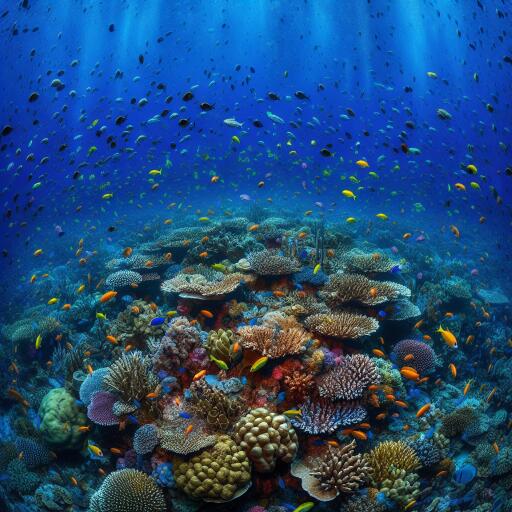
Ocean Acidification Turns Fish Off Coral Reefs
In a groundbreaking new piece of research conducted around the coral reefs of Papua New Guinea, scientists have unveiled the startling impact of ocean acidification on coral habitats, affecting the residency patterns of fish species. This study sheds light on the intricate relationship between the health of coral structures and their aquatic inhabitants, expanding our understanding of the consequences of climate change on marine ecosystems.
Ocean acidification, a lesser-discussed consequence of global warming, occurs when the ocean absorbs increased levels of carbon dioxide from the atmosphere, lowering the water’s pH. This process decreases the availability of calcium carbonate, a critical component that corals rely on to maintain and build their skeletons.
The remarkable research, spearheaded by a team of scientists, reveals that ocean acidification could lead to the simplification of coral structures. Notably, these modifications in coral architecture do not necessarily reduce the coral cover but do result in less branched and structurally complex reefs. Such changes make these habitats less attractive to certain fish species, particularly those that favor complex environments for shelter and foraging.
The study focused on two reefs in Upa-Upasina, Papua New Guinea, creating a natural experiment setup unparalleled by laboratory simulations. One reef was situated near a volcanic seep that emits carbon dioxide continuously, naturally acidifying the surrounding waters. The other, only 500 meters away, remained unaffected, offering a pristine control site for comparison.
Through close observation, the research highlighted varying responses among different fish species to the simplified coral structures caused by acidification. While two species of damselfish demonstrated a clear preference for the intricately branched corals, two other species showed some flexibility, though they still favored complex habitats. A fifth species, adapted to living among rubble, showed strong association with such environments, underscoring the diverse adaptability of fish to changing habitats.
The implications of ocean acidification extend far beyond the alteration of coral architecture. The study suggests potential reshuffling of ecological communities, loss of biodiversity, and declines in fisheries productivity, which could harm both economic and food resources globally. Moreover, altered fish populations could lead to new community structures with potentially lower resilience and biodiversity.
This phenomenon is not just a future possibility but a present reality at the research site in Papua New Guinea, serving as a stark indication of what may lie ahead for oceans worldwide if carbon dioxide emissions continue unabated. The research underscores the critical need to reduce CO2 emissions globally to mitigate the adverse effects of ocean acidification.
In conclusion, the study stands as a vital call to action, emphasizing the need for global cooperation in carbon reduction efforts. By undertaking more robust measures to curtail CO2 emissions, we can aim to preserve the complex beauty and ecological significance of coral reefs, ensuring a healthier future for our oceans.





Leave a Reply